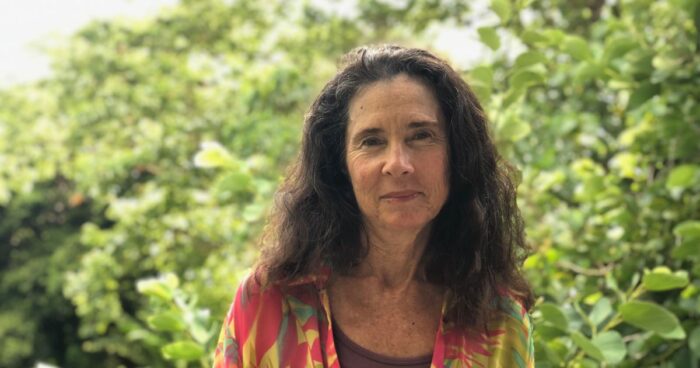This is an interview article with KR. KR’s responses are highlighted in blue.
This is an in-depth Ho’oponopono dialogue. Xiaolin, an awakened CEO who has practiced cleaning for over a decade, asked KR four questions.
Yesterday, we published the first part. Today, we bring you the second part, starting with how to support children with their homework.
<How can we clean our relationships with our children?>
── I’d like to ask a question about parent-child relationships.
I have two children. After dropping them off at school in the morning, I go to work, and I feel very calm and happy at the office. We generally get along well and enjoy a lot of love and freedom in our interactions—except during homework time in the evening. That’s when tension arises in our relationship, and I sometimes lose my patience. When I see them not taking their work seriously or being slow, I can’t help but nag, and at times, I even yell. Of course, I feel regret afterward. I’ve talked to other parents about this and found that many Chinese parents face similar struggles.
It’s not just Chinese parents; parents in the U.S. experience this too.
Among all relationships, the parent-child connection especially allows us to reflect on and understand ourselves.
── When it comes to my children’s education, I often feel very conflicted.
My kids attend public school, and I want to give them more time to play, but there’s so much homework they have to finish. It’s tough for them. Sometimes, I feel powerless and unsure how to support them. Perhaps all I can do is clean. While they’re at school, I play cleaning music in their rooms and spray Blue Solar Water.
This is yet another opportunity to look at ourselves.
As parents, what we can do in these moments is “experience” and listen during cleaning. We can clean our experiences as parents related to our children’s schooling and everything associated with it. Each person and child is different.
For instance, I know some families choose schools where students are not allowed to bring homework home; everything must be completed at school. When the children come home, they have time to play. But, of course, these schools can be expensive, and some parents may feel they’re not a good fit or don’t have access to such options.
This is a situation in life that we need to clean. I, too, used to feel that the homework was overwhelming. I’ve had such thoughts, and what I could do was clean those feelings.
── Yes, this is an area I really need to clean. My second child is very wise. Sometimes he even teaches me, saying, “Mom, don’t criticize your kids. The more you criticize, the dumber they get. You should praise them more, and they’ll get better.” But when I see the mess they make of their homework, it feels impossible to praise them.
In such moments, we may feel at a loss about what to do. We need to clean these feelings. Remember, no experience exists outside of us.
── This process often feels like an endless cycle of conflict and powerlessness. I realize that my children’s homework is a profound cleaning opportunity. Each time I lose my patience, it’s a reminder and an opportunity for me to re-educate myself and clean.
Sometimes, I even think I need to learn to accept my children’s ordinariness. I don’t need them to be exceptionally outstanding. Sometimes, I feel that their happiness is enough.
The education system here is quite competitive, but I still hope their childhood is joyful. I want them to look back someday and remember their time with their mom and dad as filled with happiness.
When we practice Ho’oponopono, it always involves ourselves, our family, relatives, and ancestors.
Your two children didn’t come into this world as blank slates without any memories. They came to you as your children with pre-existing memories.
And you didn’t just meet them for the first time after they were born. You already knew them before their birth, and in this lifetime, you’re reunited with them again.
When we clean, we are looking at our interactions with them—what is right, how we should treat them, and what they need to do now.
In every moment, we clean to understand what we need to do.
Every child is truly unique, and so is every parent. Decisions like which school to attend or what is right for a child cannot be predetermined.
The best thing we can do is clean.
We cannot define externally what is good or bad for a child. When you notice feelings during interactions with your children, remind yourself that these feelings are family-related memories. The only thing we can do is clean those memories in the present moment. That’s the only thing we can do.
── Thank you. There’s still a long road of cleaning ahead.
As your children grow older, everything will improve. This journey benefits you as well. When we clean, many things in our lives change. As you clean your experiences related to your children, you will become a different mother.
KR’s Cleaning Tip:
I’d like to share a cleaning method I’ve used for my children, which has been significant throughout their upbringing.
Before they leave the house, I clean myself, my children, and the routes they take to and from school.
Before I go out myself, I also clean—cleaning myself, my destination, and the entire journey to and from my destination.
From my experience, whether I clean or not affects both my own experience and my children’s experiences when they return home. I’ve found this method to be very helpful.
<How can we clean for our New Year’s wishes?>
── Thank you. Lastly, I’d like to ask about cleaning New Year’s resolutions.
At the end of the year, many people write down their goals for the coming year. Do you have any resolutions for 2025, and how do you clean your goals?
My situation is a bit different. I started practicing Ho’oponopono as a teenager, so my feelings about the New Year might be different.
For me, I remain myself, and life continues as usual.
I understand that for many people, the end of the year is a particularly significant time. Writing New Year’s resolutions is an important ritual for many.
KR’s Cleaning Tip:
If that’s the case, I suggest cleaning the act of “writing resolutions.”
Clean before, during, and after writing. For example, clean the experience of “wanting those things.” Approach it with a playful mindset, as if playing a game with yourself.
We are always “cleaning” the list, not “creating” it.
Remember, no experience exists outside of ourselves.
As we clean our resolutions, we experience changes during the process.
── That’s excellent advice. Thank you so much, KR. Lastly, do you have any New Year’s wishes for your Chinese students?
I’d like to say, thank you very much!
Every time we choose to clean, we change!



